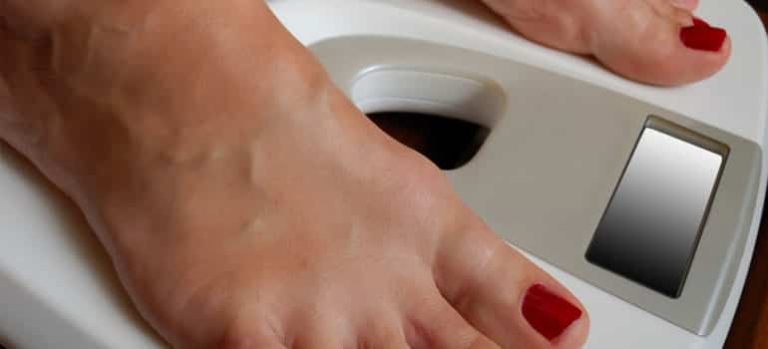Lose Weight In Your Sleep With Phentermine
We’re not saying that losing weight is easy, but it is possible to lose weight in your sleep with phentermine. That’s because not only is sleep essential for good health and well-being, but getting enough shut-eye also helps you to lose weight. For this reason, it’s crucial to include plenty of sleep in your phentermine weight loss schedule to lose the most weight with phentermine and to enable you to achieve long-term success.
Here, we look at how sleep can help you maximize your weight loss results and how to overcome the phentermine side effects of insomnia to sleep better while taking phentermine.
How Sleep Helps You Lose Weight
While it may sound too good to be true that sleeping could hold the key to weight loss, many researchers have discovered that lacking sleep leads to weight gain and difficulty in shedding excess pounds. Here’s how:
Sleep Helps You Make Healthy Choices
Not getting enough sleep dulls activity in the brain’s frontal lobe – the area of decision-making and impulse control – so being tired makes it difficult to resist temptation and make healthy choices. What’s more, when you’re overtired, your brain’s reward centers are activated, and your resolve is weakened, making it harder to control cravings for your favorite foods as your brain seeks out what feels good rather than what it knows to be healthy. Research supports this; a study in the American Journal of Clinical Nutrition found that sleep-starved people were likelier to choose unhealthy snacks, and another study found that not getting enough sleep prompts people to eat more significant portions unintentionally. It’s also a bad idea to go grocery shopping when you’re tired; in a study published in the journal Obesity, sleep-deprived shoppers bought nearly 1,300 calories in food more than well-rested participants, and this was not related to hunger as all participants had been fed the same breakfast before the test. All in all, a sleep-deprived brain appears to crave junk food while also lacking the impulse control to say no.
Sleep Balances Hunger Hormones
Not only does a lack of sleep mess with your brain’s ability to make decisions, but it also causes an imbalance in hormones, which send signals relating to hunger and satiety to the brain, meaning that your already struggling brain has even more to deal with. Without enough sleep, the body begins to make more of the hormone ghrelin, which tells your brain when it’s time to eat, and at the same time, your body produces less leptin, the hormone that tells your brain when you’re full. So, if you’re taking phentermine but not getting enough sleep, despite phentermine’s appetite-suppressing effects, you may feel that your phentermine has stopped working due to these mixed-up hunger cues signaling that you’re still hungry even after eating. Your doctor may then prescribe a higher dosage of phentermine, which in turn could exacerbate the phentermine side effect of insomnia and therefore cause a harmful cycle of sleeplessness, an inability to lose weight, and more potential for phentermine withdrawal symptoms.
Sleep Boosts Metabolism And Fat Burn
A lack of sleep also plays havoc with another hormone, the stress hormone cortisol. Cortisol signals your body to conserve energy to fuel your extra waking hours, causing your body to break down lean muscle (the type of tissue that helps burn calories more efficiently), meaning that your metabolism slows down and you’re more likely to hang onto fat. A study from the University of Chicago supports this; the study compared participants sleeping eight and a half hours per night and participants sleeping only five and a half hours per night. In both conditions, people ate the same number of calories (about 1,450 calories per day), and while both groups lost about six and a half pounds, here is where we can see how the scale doesn’t tell the whole story as more than half of that weight was fat for well-rested people, compared to only a quarter for tired participants. This indicates that these dieters were shedding precious lean muscle, which then makes it harder to keep weight off in the long term, leading to yo-yo dieting and an increased likelihood of having to take phentermine several times.
Participants in other sleep deprivation studies also report feeling hungrier throughout the day, low on energy, and less satisfied after meals, whereby again, for those taking phentermine, these symptoms of sleep deprivation could result in a belief that phentermine has stopped working. By getting enough sleep, not only do you have more energy to take on the day and exercise, but your body also burns more calories even when you’re not working out. A study found that normal sleepers’ resting energy expenditure – the amount of calories burned when not moving -was five percent higher than their tired counterparts, and they also burned 20% more calories after a meal versus sleep-deprived people. Studies have found that within four days of insufficient sleep levels, your body loses around a third of its potential for insulin sensitivity. As your body fails to respond appropriately to insulin levels, it then has trouble processing fats from your bloodstream and ends up storing these fats in the body. So, not getting enough sleep causes your metabolism to slow down and contributes to an increase in body fat, meaning that despite your hard work with diet and exercise while taking phentermine, a lack of sleep counteracts these efforts and may stall your weight loss or even result in weight gain.

Sleep Helps You Avoid Late-Night Snacking
It may seem obvious, but if you’re awake longer and cannot resist temptation and misplaced hunger cues, you also have the extra time to eat more food.
Researchers at the University of Pennsylvania found that people who kept up until 4 am ate 550 additional calories during their late-night hours.
As is often the case with ‘night owls,’ staying up late is usually caused by being engrossed in activities such as reading, writing, homework, watching television, playing video games, or surfing the internet. These activities keep the mind occupied but leave the body bored and restless, resulting in night owls seeking another form of satisfaction, which generally comes in the form of food.
Moreover, due to your tired brain’s cravings for easy calories, more of these late-night calories come from high-fat foods rather than the healthy foods consumed during the daytime. Interestingly, it’s not just a direct lack of sleep that affects weight; an Australian study showed that early risers were less likely to be overweight than night owls, even though both groups slept the same hours. This is because staying up later than your body wants to is what initially triggers the imbalances in ghrelin and leptin, so even if you go to bed later and get up later, your hunger cues may be off, which is why a 10 pm bedtime should be one of your resolutions for the New Year.
How To Sleep Better On Phentermine
Despite experts agreeing that getting enough sleep is as important to health, well-being, and weight as diet and exercise, nearly two-thirds of Americans aren’t getting enough sleep during a typical week. As we’ve seen above, a lack of sleep can be detrimental to your ability to lose weight with Phentermine, so it’s important to include between 7 and 9 hours of sleep per night as a crucial part of your Phentermine weight loss schedule. However, a key problem for those taking phentermine is that insomnia is one of the most common phentermine side effects due to how phentermine overstimulates the central nervous system to increase alertness, later making it difficult for you to ‘switch of’ despite feelings of tiredness.
To get more sleep with phentermine, we recommend that you take your phentermine earlier in the day to reduce the possibility that you will have trouble sleeping when you go to bed, as the energy-boosting effects should wear off throughout the day. You should also try to expel the excess energy that phentermine gives you by taking up an exercise that you enjoy, as exercise aids sleep by helping to regulate circadian rhythms and balance out hormones that help you sleep. You should also try disconnecting as much as possible before bedtime with reduced use of smartphones, computers, and televisions, and try reading or taking a hot bath instead. Lastly, avoid caffeine by refraining from drinking coffee, tea, and soda for the hours before bed.
If you’re struggling with insomnia, it’s recommended that you consult your doctor before taking sleeping medications, as these can reduce the effectiveness of phentermine by increasing the acidity of your urinary pH or may cause a harmful interaction when combined with phentermine. However, serotonin precursor 5-HTP is a natural aid for sleep, and it has also been shown to improve the effectiveness of phentermine in medical trials. A medical study from 2009 confirmed the researchers’ expectations that 5-HTP would reduce the stimulant side effects of phentermine, such as jitteriness, anxiety, and insomnia – findings supported by reports of improved sleeping patterns on our support group on Facebook. This study also found that “combining 5-HTP and phentermine generally results in greater weight loss than observed with either medication alone.” The author attributes this to the combination of chemical and naturally occurring appetite-suppressing properties, whereby 5-HTP, well-known for its use in serotonin deficiency syndrome, is recognized as a natural appetite-suppressant that supports the effects of phentermine and strengthens its effectiveness across bodily functions.
However, if you find the phentermine side effect of insomnia too much for you, then you may want to consider a weight loss alternative, such as PhenQ, the #1 phentermine alternative. PhenQ does not contain phentermine but combines innovative ingredients that produce the same effects as phentermine in suppressing appetite and boosting energy levels. PhenQ also has no side effects, so you can benefit from its weight-loss-boosting effects without worrying about disrupted sleeping patterns affecting your weight-loss potential.
Are you getting enough sleep with phentermine? Let us know by commenting below.
Did you like the article?
Subscribe to our weekly newsletter and get our best weight loss tips straight to your inbox!









Hi, I have been on Phentermine for nearly 3 months. I had initially lost 18 pounds but put it back on again. I am a diabetic and on a lot of medication. I have nerve damage in my legs and have limited movement since I broke my ankle a year ago. My weight has gone from 195 to 275. Yesterday I put my head down at 06.22 and was awake again at 07.15 because I had a doctors appointment and this happens on a regular basis. My Doctor has suggested sleeping pills but because I have had blood sugars that have dropped during the night, I said no. Phentermine does not appear to be working for me and I don’t know what to do especially as some of my medication that I am on causes weight gain. What would you suggest? Exercise is limited due constant swelling of my left ankle and pain, but I am presently doing aqua therapy which my Doctor referred. What else would you suggest?
Hi Desreen,
Aqua therapy sounds perfect for you with the ankle pain you’re suffering from. You could also try swimming but with a float for your lower body so that you are just working your upper body, or you could also try working your upper body with weights to strengthen your arms, back, shoulders and abs. This muscle will also make burning calories easier for your body. When you say you put your head down at 6.22, do you mean that you are suffering from insomnia and couldn’t get to sleep until the early morning? If it’s phentermine causing this and it’s not even working for you then I think it would be better to come off it and try a different method to lose weight as this lack of sleep is only going to make you gain weight.
Sally, phentermine.com